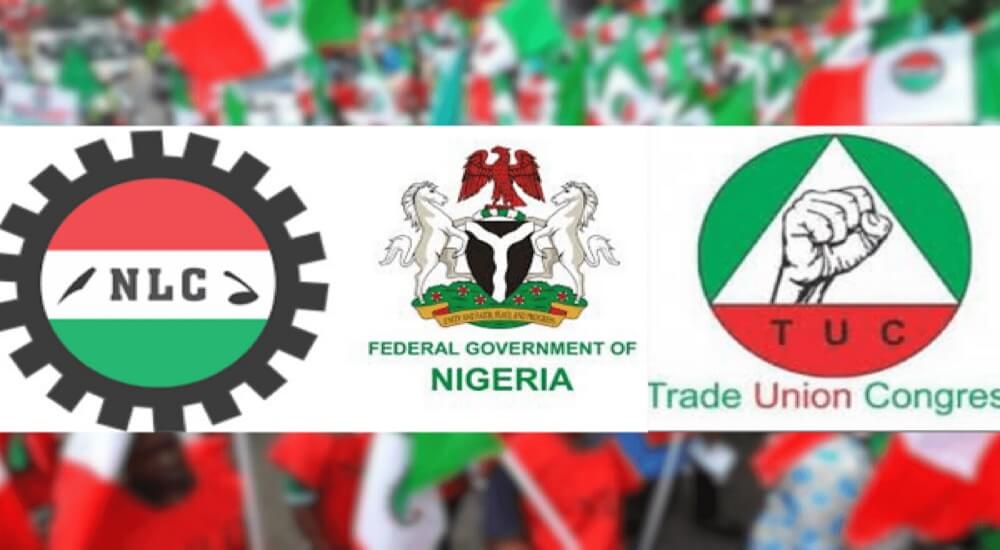
The leadership of the Organised Labour has expressed divergent views on the tax reform bill before the National Assembly.
The President of the Nigeria Labour Congress (NLC), Joe Ajaero, called for the bills withdrawal, while the President of the Trade Union Congress (TUC), Festus Osifo, applauded the bill, noting that some sections should be adjusted.
The Tax Reform Bill consists of the Nigeria Tax Bill (NTB), Nigeria Tax Administration Bill (NTAB), Nigeria Revenue Service Establishment Bill (NRSEB), and the Joint Revenue Board Establishment Bill (JRBEB).
The reforms are introduced to address inefficiencies, broaden the tax base, increase government revenue, and stimulate economic growth.
In a New Year message to Nigerians, Ajaero said the welfare of the citizens remains the primary justification for the existence of any government.
He stated that access to food and nutrition, better healthcare, quality housing, education, transportation, and greater security of lives and properties, including the right to participate in decisions on governance, are the key expectations of the people and workers.
Thus, to create a thriving and democratic nation, Nigeria needs a system built on the tenets of social dialogue, allowing critical stakeholders to participate actively in nation-building.
He said, “Inclusiveness will foster deeper ownership of government policies, ensuring stability and sustainability.
“It is on this premise that we once again call on the federal government to withdraw its present Tax Bill before the National Assembly so that all key national stakeholders will be part of the process.
“As we embark on a National Dialogue in Ibadan in January 2025, we want to join hands in co-creating a new national Tax law that would enjoy wider acceptance and would fulfill its purpose of propelling national development, which we believe is the main objective of government.
“As we move into 2025, we urge the federal government to prioritize industrial peace by taking social dialogue seriously, pursuing pro-human-progress policies, and respecting agreements with trade unions.”
However, the TUC President exclusively told THE WHISTLER that the tax reform bill is a welcome development, although some sections need to be addressed.
The reform, which seeks to exempt minimum wage earners—citizens whose annual pay is N1m—had Osifo applauding the move. He noted that it would also increase the capital strength of Small and Medium Enterprises (SMEs) in Nigeria.
He said, “Yes, the tax reform bill is huge and wide. So there are good things in the tax reform bill. There are things that are not also too palatable. There are good things in it.
“For example, minimum wage will not be taxed. Those that earn N800,000 per annum salary, plus N200,000 allowance, making N1m will be exempted from tax.
“We welcome that. It’s a good development, but you need to increase that net to maybe those earning up to N2.5m per annum.
“For SMEs that are into business and their turnovers are less than N50m, they will not be subjected to tax.
“We love that because most of the small and medium-scale enterprises, the nano companies, they all fall within this—the barber shop, the hairstylist, the welder guys, they all fall in this category.
“So in that tax bill, what that means is that most of the enterprises you see across the street will not pay tax. They’ll be exempted from tax.
“And the money you don’t pay as tax will go back into your business, or you could use it maybe for your children, for yourself, and also increase your disposable income.
“So for us, those are some positives.”
Speaking on some sections of the reforms that should be adjusted, Osifo highlighted the increment of Value Added Tax (VAT).
According to him, broadening the VAT collection process to make it seamless should be implemented instead of increasing VAT.
He said, “There are some things that we are also looking at, things like the increment in Value Added Tax (VAT). So our advocacy is, why don’t you broaden the tax net, bring in more people because the commercial rate today is quite low.
“So, why don’t you improve the efficiency of collection so that more people will pay rather than increasing the rates?”
Reiterating further, Osifo said, “There are some areas we don’t quite agree with. So we will come up with all these through the public hearing and make our presentation and our position known.”
NLC, TUC Split Over Tax Reform Bills is first published on The Whistler Newspaper